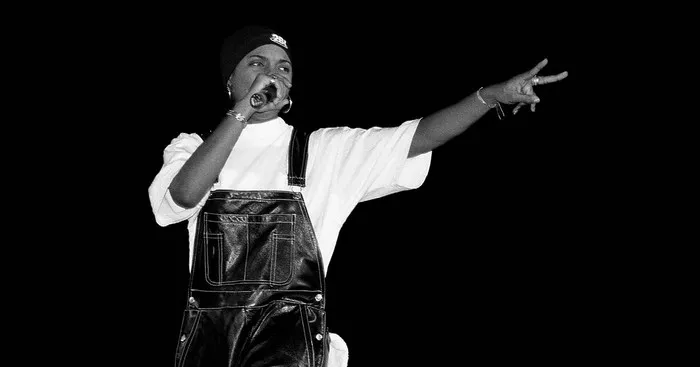The early 1980s marked a revolutionary period for hip-hop music, with innovative artists and producers pushing the boundaries of sound and culture. During this transformative era, several instruments played pivotal roles in shaping the genre’s unique sound. However, one instrument stood out as particularly crucial: the drum machine. This article explores the significance of the drum machine in early 1980s hip-hop music, delving into its history, impact, and the creative possibilities it unlocked for artists during this vibrant period.
1. The Rise of Hip-Hop in the Early 1980s
The Birth of a Movement
Hip-hop originated in the South Bronx, New York City, during the late 1970s. This new cultural movement encompassed four main elements: DJing, MCing (rapping), breakdancing, and graffiti art. As hip-hop gained momentum, it began to permeate popular culture, evolving from a grassroots phenomenon to a significant musical genre.
The Role of DJs and MCs
In the early stages of hip-hop, DJs and MCs were central to the music. DJs like Kool Herc, Grandmaster Flash, and Afrika Bambaataa were pioneers, utilizing turntables to mix and scratch records, creating the rhythmic backbone for MCs to rap over. The innovative techniques of these DJs laid the groundwork for the genre’s development.
2. The Emergence of the Drum Machine
Introduction to Drum Machines
A drum machine is an electronic musical instrument designed to imitate the sound of drums and other percussion instruments. Drum machines can be programmed to play specific rhythms and beats, allowing musicians to create complex and consistent percussive patterns.
The Roland TR-808: A Game Changer
Among the various drum machines introduced during this period, the Roland TR-808 Rhythm Composer emerged as the most iconic and influential. Released in 1980, the TR-808 was initially marketed as a simple and affordable rhythm machine for musicians. However, its unique sound quickly captured the imagination of hip-hop producers and artists.
3. Why the Drum Machine Was Crucial for Hip-Hop
Affordability and Accessibility
One of the key reasons for the drum machine’s importance in early hip-hop was its affordability and accessibility. Unlike traditional drum kits, which were expensive and required significant space, drum machines like the TR-808 were relatively affordable and compact. This made them accessible to young and aspiring hip-hop producers working with limited resources.
Innovative Sound Design
The TR-808’s distinctive sound was a departure from the more realistic drum sounds of its predecessors. It featured deep, booming bass drums, crisp snare drums, and a variety of other unique percussive sounds. These sonic characteristics allowed hip-hop producers to craft beats that were both powerful and distinctive.
Creative Control and Flexibility
Drum machines offered unparalleled creative control and flexibility. Producers could program intricate rhythms and experiment with different tempos and patterns, something that was more challenging to achieve with traditional drumming. This level of control enabled the creation of complex and innovative beats that became the foundation of hip-hop tracks.
4. Iconic Tracks Featuring the Drum Machine
Afrika Bambaataa & The Soulsonic Force – “Planet Rock”
Released in 1982, “Planet Rock” by Afrika Bambaataa & The Soulsonic Force is one of the most iconic tracks of the early 1980s that prominently features the TR-808 drum machine. The track’s futuristic sound and electronic beats were groundbreaking, influencing countless artists and producers.
Run-D.M.C. – “Sucker M.C.’s”
Run-D.M.C.’s 1983 track “Sucker M.C.’s” is another seminal hip-hop song that showcased the power of the drum machine. The minimalist beat, driven by the TR-808, highlighted the raw energy and lyrical prowess of the MCs, setting a new standard for hip-hop production.
LL Cool J – “Rock the Bells”
LL Cool J’s “Rock the Bells,” released in 1985, is yet another example of the drum machine’s impact on hip-hop. The track’s relentless, hard-hitting beat created an intense backdrop for LL Cool J’s dynamic delivery, further cementing the drum machine’s role in the genre.
5. The Drum Machine’s Legacy in Hip-Hop
Shaping the Sound of a Generation
The drum machine, particularly the Roland TR-808, played a crucial role in shaping the sound of early hip-hop. Its distinctive beats and rhythms became synonymous with the genre, influencing not only hip-hop but also other genres like electronic music and pop.
Influence on Modern Production Techniques
The techniques developed by early hip-hop producers using drum machines have had a lasting impact on modern music production. The use of programmed beats, sampling, and electronic sound design are now standard practices in contemporary music, demonstrating the drum machine’s enduring legacy.
Cultural Impact and Nostalgia
The drum machine’s iconic status has also led to a sense of nostalgia and reverence within the hip-hop community. Many modern producers continue to use vintage drum machines or software emulations to capture the classic sound of early hip-hop, paying homage to the genre’s roots.
See Also: Which Dance Style Grew Out of Hip Hop Music?
Conclusion
The drum machine, especially the Roland TR-808, was a vital instrument in the early 1980s hip-hop scene. Its affordability, innovative sound design, and creative flexibility made it an indispensable tool for producers and artists. Iconic tracks like “Planet Rock,” “Sucker M.C.’s,” and “Rock the Bells” showcased the drum machine’s transformative power, cementing its place in hip-hop history. The legacy of the drum machine continues to influence modern music, highlighting its enduring significance in the evolution of hip-hop and beyond.

